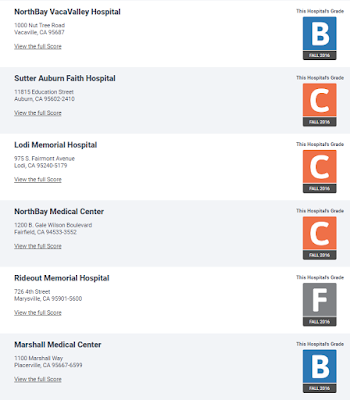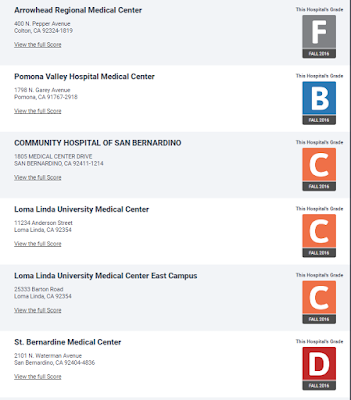An Island of Conservatism in Hollywood
LOS ANGELES (Washington Examiner) — It surprised no one last fall when Los Angeles and California at large overwhelmingly backed Hillary Clinton in her failed bid for the presidency. Just seven of the city’s 1,700 precincts went for Donald Trump.
But while nearly all of the surrounding region voted for the Democratic former secretary of State, one little chunk of Hollywood best known for the Church of Scientology’s “Big Blue” complex went red, picking the Republican billionaire instead.
The precinct, wedged between Hollywood Boulevard and Fountain Avenue, tipped to Trump by just three votes, 347-344. It marked the first time since at least 2000 that the area went Republican. In 2012, President Barack Obama defeated Gov. Mitt Romney by 81 votes, 316-235.
“I honestly can’t begin to fathom how or why that happened,” said Erin Lee, a precinct voter and one of several Clinton supporters who said they were shocked to learn that Trump had carried their neighborhood.
“How can that be?” asked Lemuel Balagot, another local voter. “I went for Hillary, and everyone I know besides me went for Hillary. … Who were the Scientologists for?”
 |
| Church of Scientology sign and logo on Hollywood Boulevard |
Good question, and one that’s not easily answered — voting records don’t reflect how individual ballots are cast. The church, like other tax-exempt religious groups and nonprofit organizations, is barred by law from participating in political campaigns and assiduously avoids taking sides in elections.
“The Church does not engage in election activities and cannot do so,” Scientology spokeswoman Karin Pouw said in an emailed statement. “Such decisions are not a matter of faith. The Creed of the Church makes clear that Scientology is open to all. This would include anyone regardless of their race, color, creed or political affiliation.”
Church members and others in the neighborhood said there was little advertising or campaigning for either presidential candidate, and none they knew of related to the church. Nor did voters with stated Scientology ties appear to contribute significantly to either side: One man, who listed his occupation as “public relations” for the church, contributed $28 to Trump’s campaign, election records show.
Pouw said that nothing in the Los Angeles Times’ analysis of results “suggests a significant difference to the general leanings of the American people,” noting that Trump won by just a few votes, with neither candidate landing a majority. She also said the Times’ findings “inaccurately suggest a unique trend about a single religion.”
“Scientologists live and work in many other precincts in Los Angeles,” Pouw said. “The Church remained neutral in the presidential election as we always do. We support this country’s electoral process and America’s representative form of government, and respect the right of parishioners, our staff and clergy to vote for the candidate of their choice.”
The Trump campaign did not respond to requests for comment.
Of the roughly 1,100 voters registered in the precinct, about half list addresses of Scientology properties. More than 250 voters listed addresses on L. Ron Hubbard Way, named for the science fiction writer who founded the church in 1954 and parlayed his self-help system, Dianetics, into a worldwide religion without a deity.
Some 170 voters in the precinct listed phone numbers at Scientology organizations as their primary numbers, according to the Times’ analysis. Although phone numbers are not required, statewide voter registration records show the most common one listed in California belongs to the church. So does the second most common number. And the fifth. And the sixth.
“Church staff members list whatever phone numbers they choose,” Pouw said. “I couldn’t speak for them. Many, but not all, have cellphones. Perhaps you should look at the voting trends of the religious orders of other faiths to see what phone number they may list or whether they vote.”
Few of those contacted by telephone or on public sidewalks near the landmark Scientology building, a former hospital on Fountain Avenue that serves as the church’s West Coast headquarters, would speak for the record about their votes.
Two women who identified themselves as church representatives approached a Times reporter on several occasions and told her she was making parishioners feel “harassed and uncomfortable” by asking questions — and then hovered nearby. A few times, church security guards rolled up on their bicycles. One suggested to a church member that he move along to his next course.
“We don’t talk to the press,” the member said.
Several spoke with reporters on condition of anonymity or using only their first names. None said there was any concerted effort by the church, its members or staffers to push for one candidate over the other.
“Scientologists are very conservative socially,” said one church member, who voted for Clinton. “Scientologists are very conservative in terms of economics and business. It really does make sense that it would be more aligned with the Republican Party.”
He said he based his perceptions of the political leanings of the church and its members on conversations with acquaintances, as well as Scientologists’ postings on Facebook and Twitter.
“They were divided between pro-Trump stuff that’s anti-government and seeing Hillary as part of the establishment, seeing Hillary as part of the elite,” he said. “Part of it was pro-Trump. A lot of it was more anti-Hillary.”
Among those who did proffer a theory for publication was James Kronwall, a registered Republican who lives on L. Ron Hubbard Way, and said he knew why the precinct went for Trump.
“Scientology is the No. 1 foe of psychiatry,” he said, adding that he and others in the church perceive Clinton to be an advocate for psychiatric programs.
Kronwall, a carpenter who said he’s been a member of the church for 40 years, didn’t vote for either Trump or Clinton. Instead, he was one of about 50 in the area who cast their ballots for Libertarian candidate Gary Johnson.
“I wanted to make at least some kind of statement if I could,” he said.
Read More . . . .





































